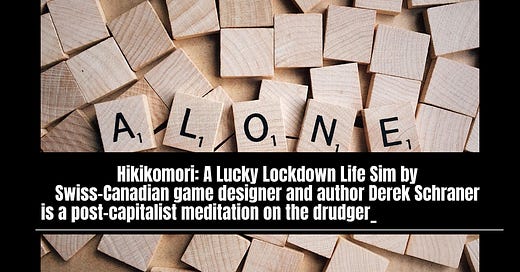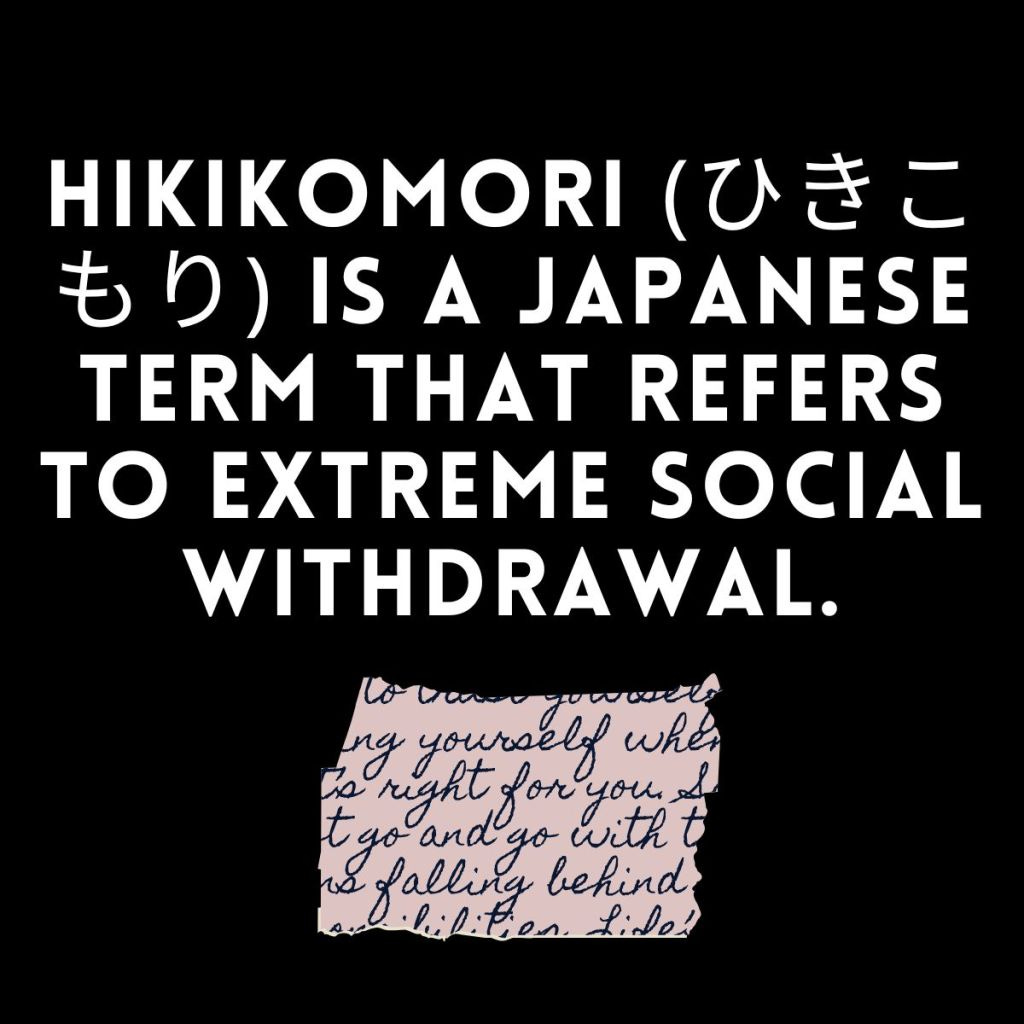Hikikomori (ひきこもり) is a Japanese term that refers to extreme social withdrawal. For many, hikikomori is one of the most sane responses to an insane world. It is an intentional retreat from the madness in which the world currently exists.
Extreme social withdrawal for many people means both safety and avoidance of chronic illness, and acute suffering. As such, Hikikomori is an act of radical social resistance and an embrace of survival.
But that safety in retreat comes with a cost that must be paid. Enter: Hikikomori, an immersive "lucky lockdown life simulator" inspired by the concept of social isolation. It offers a unique approach to balancing daily activities.
The game Hikikomori: A Lucky Lockdown Life Sim by Swiss-Canadian game designer and author Derek Schraner is a post-capitalist meditation and gamebook on the drudgery of daily survival in a world of extreme income inequality, epidemics and pandemics.
This unconventional, genre-bending casual gamebook is also a conceptual art piece, and a howl of protest about the mishandling of the global COVID-19 pandemic, climate change, the new pandemics that are fast nipping at its heels, and the exploitation of working people.
Derek Schraner has been living for five years in a self-imposed isolation to ensure a vulnerable family member is safe during the ongoing COVID-19 pandemic. Schraner has spent decades studying games as art forms and experiences. Hikikomori: A Lucky Lockdown Life Sim is the first in a series of games based upon the culmination of Derek Schraner's deep and dedicated research.
Hikikomori uses gameifed procedural rhetoric to capture and convey the lifestyles of the alienated, isolated millions on this planet who are, more and more, simply opting out of the rush, push and crush of late-stage capitalism (Bogost, 2007). Hikikomori: A Lucky Lockdown Life Sim captures the boredom, despair and joys of a life led in quiet resistance to a world that uses and discards people to accelerate the rise of the New Robber Barons.
This ground-breaking game book, art experiment and conceptual worker protest captures the repetitive daily grind of basic survival in a world gone mad. While you play, you will uncover and capture glimpses of the designer’s real life, laced through the game play like whispered secrets. You will experience a life spent in safe and often happy isolation …but your time is running out.
At first glance and on the surface of the game pages, you first perceive the monotony of an isolated life, but as you play, you will see the hidden and dramatic depths of slight, often variance, and the challenges posed by the unexpected even in this quiet inner world.
In the game, you walk along with the designer through a world where you attempt to separate yourself from danger, disease and debt. As you play, you experience the active, overt refusal for the human spirit to be crushed under the burdens of late-stage capitalism where many will die on their proverbial feet, working until they drop. You, like the designer, refuse. You must continue to play the game to survive.
You, playing as a Hikikomori, are forging a different path, all while trying to meet your daily obligations of work, bill payment, feeding and caring for yourself in a society which does not care about you. In the pages of Hikikomori: A Lucky Lockdown Life Sim you will learn a different way to live. You will find depth, drama and joy in the process.
For fans Perfect Days (2023) a drama film about a Tokyo toilet cleaner directed by Wim Wenders and written by Takuma Takasaki and Jeanne Dielman, 23, quai du Commerce, 1080 Bruxelles (1975), a film written and directed by Chantal Akerman about the daily routine of a middle-aged widow in Brussels … this game book and experience will deeply resonate.
You will experience the many slight but meaningful permutations of daily living and work within a framework of quiet, diligent solitude and intentional retreat.
Image Credits: All photos in the video are from Picryl.com and are in the public domain.













Share this post